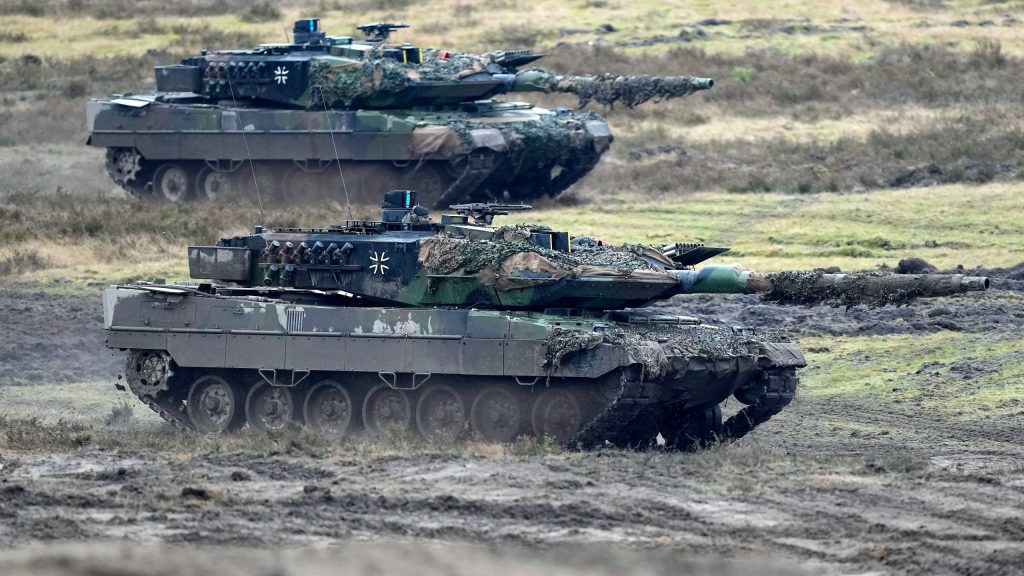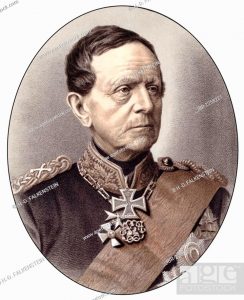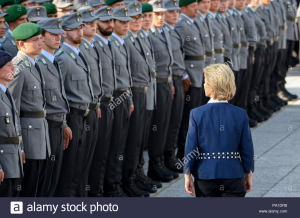By
Gen. (ret.) Dr. Erich Vad*

Since Russia launched its full-blown attack against Ukraine in February 2022, Germany has become one of the Ukrainian largest arms suppliers — incurring costs in the billions of euros. This spending and the decision-making behind it have thrown into stark relief at least two things: major shifts in German security policy, and the difficult balancing acts facing the country’s leaders.
What the War Has Revealed About the State and Focus of the German Military
Starting in 2022, Germany has become the third-largest provider of military support for Ukraine after the US and the UK. It sent goods worth a total of €2 billion (~$2.2 billion). Including multiple rocket launchers, self-propelled howitzers, and self-propelled, tracked, air defense systems. A further €2.3 billion (~$2.5 billion) in spending is scheduled for 2023. Including, this time, 18 modern Leopard 2A6 main battle tanks, former East German Mig-29 fighters, and Patriot air defense systems.
Coming on top of aid provided by other NATO countries, this largesse has had a tangible impact on the Ukrainian armed forces’ capabilities. However, it has also come at a significant cost for Germany’s own defense. So much so that Germany’s commitments to its NATO allies, as well as its ability to defend themselves, are now in danger of being compromised.
Even more important, Russia’s attack on Ukraine has fundamentally changed threat perceptions in Germany. For the first time since the end of the Cold War over 30 years ago, German defense policy is once again focused on Central Europe. The era of German peacekeeping missions abroad–in the Balkans, in Mali and in Afghanistan—is over. However, while the focus of German security policy is changing, the Bundeswehr does not have the capability to back the change.
The list of problems is almost endless. Including a shortage of armored and mechanized units; inadequate stocks of ammunition; long-neglected, out of date, facilities such as barracks; to mention but a few. The new minister of defense, Boris Pistorius, is doing what he can to correct these deficiencies. Inevitably, though, doing so will take time.
Nor is the establishment of a special fund of €100 billion (~$110 billion) for military refurbishments going to be a game changer. By my estimate, to restore operational readiness three times that sum would be needed. The necessary ammunition alone would cost at least €20 billion (~$22 billion), while urgent fixes for the ailing infrastructure would call for an additional €50 billion (~$55 billion). And new frigates, tanks and F-35 fighter aircraft have yet to be paid for.
Beyond these hardware-related risks an even greater threat is looming: that of the dire shortfalls in personnel. Following German reunification the Bundeswehr had around 460,000 soldiers. Since then it has been gradually reduced in size until, today, only about 183,000 are left. Currently plans are aiming at an additional 20,000 in 2031—hardly enough to make much of a difference.
Restoring the Bundeswehr’s Operational Readiness Will Take Years
Starting in 1990, Germany believed it could afford to neglect national and alliance defense because the threat situation was quite different. In retrospect, this was short-sighted. The fundamental failure was that Germany “imported” much of its national and alliance defense security, primarily from the U.S. At the same time, it generated a considerable amount of its wealth in China, the geostrategic rival of the U.S, and the West more broadly. And it also imported cheap energy from Russia.
The Bundeswehr’s foreign missions, first and foremost in Afghanistan, dominated the political spotlight and had to proceed, while the rest of its commitments did not seem to matter. To meet ongoing foreign missions personnel and materiel were scrounged from hundreds of Bundeswehr locations. Meanwhile, armament procurement concentrated on armored transport vehicles rather than on battle tanks and infantry fighting vehicles. This and the ever-decreasing quantities of new equipment also led to reallocation and relocation measures on the part of the defense industry.
Again starting in 1990, every military reform in Germany has been intended, not to strengthen the Bundeswehr in terms of national and alliance defense but to make it smaller and cheaper. The Bundeswehr now has fewer battle-ready tanks than Switzerland and fewer ships than the Netherlands. The hasty phase-out of conscription in 2011 exacerbates the Bundeswehr’s personnel situation to this day. A return to compulsory military service is under discussion, but is not very realistic even though similar policies have been implemented in frontline states such as Lithuania.
At the time, the suspension of conscription at the time was supported by the military leadership because it freed up tens of thousands of professional and temporary soldiers — who had previously been bound by conscription as instructors — for deployment abroad. In the process, however, massive personnel problems arose: Today some 20,000 positions in the Bundeswehr remain unfilled, trend growing. This policy has been repeatedly and rightly criticized and is finally coming to an end. Leading, one can only hope, to the fastest possible rebuilding of Germany’s defense capability within the NATO framework.
What the Future Should Hold for NATO
It is foreseeable that NATO — including new alliance partners such as Sweden (yet to be accepted) and Finland (already accepted) — will have to build up a completely new front line of defense against Russia, and, still in the background, against China as well — from the North Cape to the Black Sea. This line must be capable of being defended if necessary. The NATO-Russia Founding Act of 1997, which commits the signatories to refrain from permanently stationing substantial combat forces, is hanging by a thread. Whether it will survive remains to be seen.
In any case, Germany will have to be prepared to deploy even more military forces to potential conflict regions in Eastern Europe than it did during the Cold War. In the future, the first priority will be to strengthen the “frontline states.” In all likelihood, Ukraine will — or may even already — be one of them, when it comes to the advance deployment of equipment, ammunition and material. Following NATO directives, Germany must provide about 30,000 troops and 85 aircraft and ships at high readiness for NATO’s defense of Europe by 2025. To this end, Germany would have to establish at least one mechanized division. In addition, it would have to provide a brigade for the Baltic States, which NATO now wants to be able to defend from Day 1, with a high level of readiness. Whether this is realistic remains to be seen. Certainly it will be an enormous feat. The more so because Germany and its European allies can no longer count on our most important ally, the U.S, whose focus is the Indo-Pacific.
Moreover, the course of the Russian-Ukrainian war shows that NATO’s easternmost member states — especially Poland, and certainly Finland in the future — will play a strategically more important role in the transatlantic alliance. Germany continues to be an important logistical hub for NATO’s European defense, but it is no longer a central frontline state as it was during the Cold War.
Time for reorganizing German and European defense is running out. The Russian-Ukrainian war has highlighted different threat perceptions and interests among the European allies, which will have to be balanced in the future. The new frontline states vis-à-vis Russia — above all Poland and the Baltic States — show very little willingness to compromise. Steering the opposite course, France in particular would like to enter negotiations so as to end the war as soon as possible.
While pursuing a substantial increase in the Alliance’s military capabilities, NATO strategists should also keep in mind that the integration of artificial intelligence as a universally applicable technology and robotics will change war to change. If we want to keep pace as a military power in the future, we must have technological leadership in the air, on and under the water, on earth, in space, and, above all, in cyberspace. Along with digitalization, space is becoming increasingly important for all major world powers. Satellites are intimately connected to the global web of communication. Recent developments in hypersonic weapons — which can penetrate all conventional defense systems — raise the relevance of space-based observation and cyber capabilities. Without space security, we cannot rely on digital security on earth. Technological leadership in networked digitalization will ultimately be decisive. However, Europe can only achieve this together with — not separated or autonomously from — the United States.
Limits of the EU’s ‘Self-Defense’
While calling for a peaceful resolution of the Russian-Ukrainian war, France’s Emmanuel Macron has also been pushing for augmenting Europe’s ability to defend itself without American aid. Doing so would mean spending four to six percent of GDP on defense— as compared with the current two percent. At present, I don’t see sufficient political will among EU members to spend that kind of money, especially if ordinary European citizens learn what the oft-repeated demand for more European “strategic autonomy” would actually cost them.
EU states are already spending around 200 billion euros (~$219 billion) on defense every year. At market exchange rates that is about 3 times as much as the Russian budget and not much less than the Chinese one, though it bears noting that the European advantage would be less dramatic if one were to measure these counties’ defense expenditures with an eye to purchasing power parity (PPP). And yet no one is taking the Europeans seriously in the military field. Why? First, the EU states are wasting enormous sums in the defense sector through countless duplications of production lines, weapons programs, national certifications and general egoism — not to mention an overall lack of synergies. Combined, these factors result in constantly shifting security policies, to Europe’s detriment–obstructing its ability to act militarily and autonomously. Second, the EU is still a long way from achieving commonality in military equipment, joint logistics or coherent armaments cooperation. Third, the EU continues to lag behind the U.S in terms of military digitization, the use of space, communications and reconnaissance, and especially in strategic air transport capabilities.
Conclusion
Russia’s attack on Ukraine and Germany’s response to it, including the provision of military aid, much of which has come from Bundeswehr’s immediate inventory, to Kyiv, has highlighted the neglected state and outdated focus of the German armed forces. The war has spurred a much-needed change of this focus from peacekeeping missions to the defense of NATO and of Germany itself. As important, the German government has begun to invest in restoring the operational readiness of the Bundeswehr. But what has been pledged so far is not enough, for it will take years to restore that readiness at the current pace. More important, Germany cannot go it alone. Other European members of NATO should also up the ante to ensure their collective defense capabilities are adequate in the face of the new threats, especially as the U.S. focuses on the Indo-Pacific. In spite of this focus, however, the U.S. will remain indispensable when it comes to the defense of Europe. It is clear that without the United States, Europe cannot strategically balance powers like China or Russia, or even NATO partners like Turkey.
Europe, in my view, will continue to rely on America’s nuclear umbrella, its digital, technological and maritime leadership, and its capability spectrum in cyberspace and outer space for the foreseeable future. Ultimately, enhancements of military capabilities alone won’t make Europe secure either now or in the longer term. Thus, while continuing to aid Ukraine, Germany, France and other members of the EU should join forces in undertaking a political initiative aimed at ending the war and finding a sustainable solution to the conflict.
* Dr. Erich Vad is founder and owner of Erich Vad Consulting. A retired Bundeswehr general, from 2006 to 2013 he served as German Chancellor Angela Merkel`s military policy adviser.


 Note: This is a somewhat edited version of an article I did for a German magazine. While aimed at German readers and focusing on the state of the German Bundeswehr, I hope it will interest some non-German readers as well.
Note: This is a somewhat edited version of an article I did for a German magazine. While aimed at German readers and focusing on the state of the German Bundeswehr, I hope it will interest some non-German readers as well.